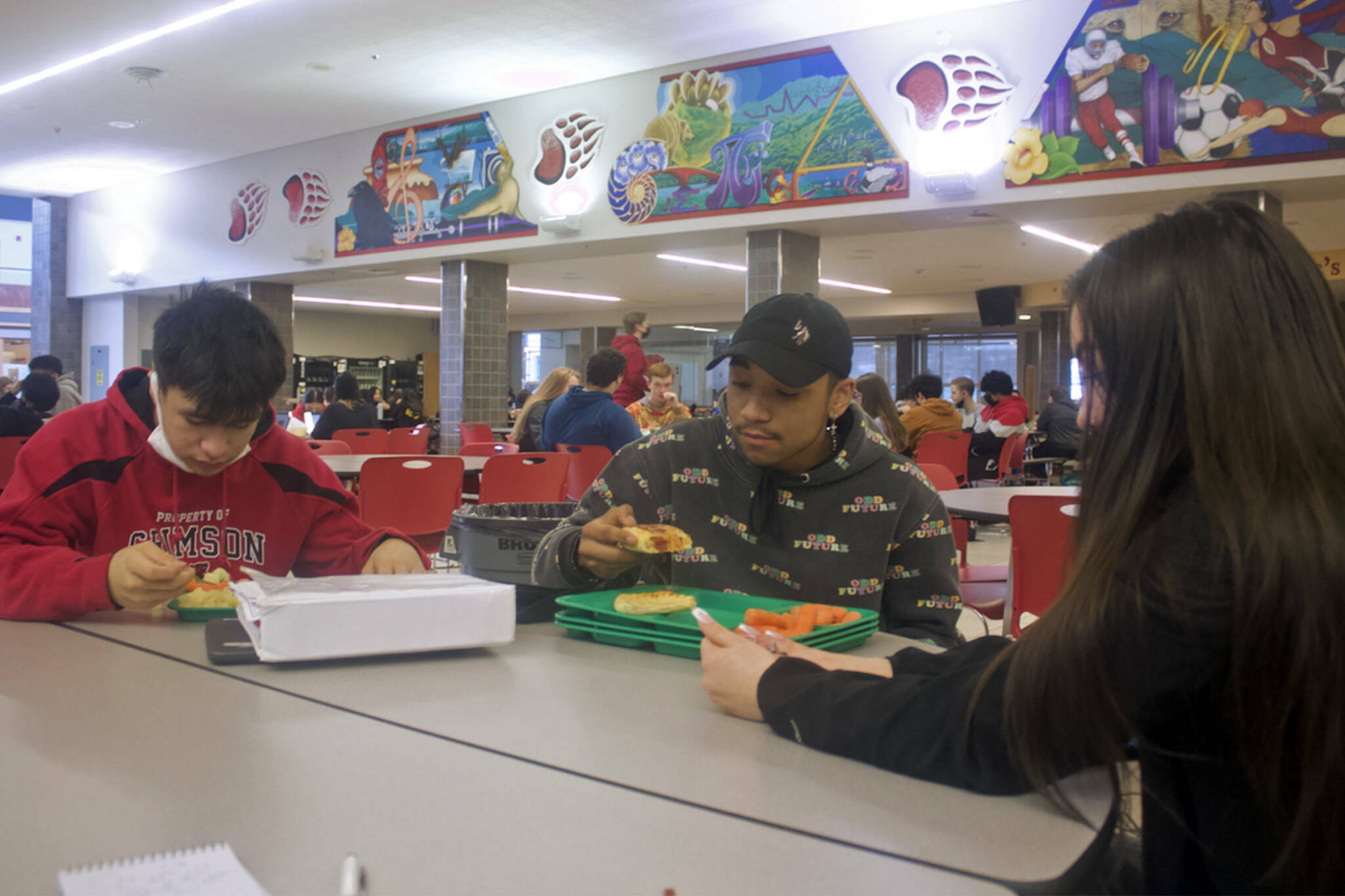This story has been updated to correct a vote tally by the school board that incorrectly stated Will Muldoon was absent.
Preliminary audit results show the food services program at the Juneau School District has a deficit of about $655,000 and its high school activity fund a shortfall of about $82,000, which the school board is considering covering using surplus funds available after drastic action was taken earlier this year in the wake of a major financial crisis.
Such action would allow those deficits to be omitted from the official independent audit for 2024 fiscal year when it is presented to the Juneau Board of Education later this fall, Lisa Pearce, the district’s chief financial officer, told board members during a special meeting at midday Friday. Audits from the past two years have cited numerous deficient practices, which was followed by the “unprecedented” budget crisis this year attributed to a multitude of factors including accounting errors.
The district’s food service program has operated at a deficit for nearly a decade, except during the 2021-22 school year due to the COVID-19 pandemic, with the current shortfall from the past two fiscal years, Pearce said. About $608,000 of the $655,000 deficit is from the past fiscal year, and she said a shortfall exceeding $500,000 was expected before the annual audit of the district’s finances started.
A memo presented to the board also noted “clearing out the HS Student Activity fund deficit will provide a fresh start for the FY25 consolidated high school.”
“I would think that the board would be pleased to be able to present an audit for the first time in over a decade that you have not had a deficit fund,” Pearce said.
Some of the board members said they were uneasy quickly approving nearly $740,000 for the shortfalls while knowing few details beyond the amounts involved and questioned if by doing so they were “rewriting history.”
“With all due respect, what I would be really pleased with as a board member is if I felt like all seven of us had a real clear understanding of all of our budget,” Elizabeth Siddon, one of three incumbents just reelected to the board in the month’s municipal election, told Pearce. “So to do this cherry-picked piecemeal budget revision doesn’t make me feel good. It feels like optics to me and I think all of us deserve a full look at all of our budget, and a conversation about all of the moving pieces, before we make a commitment.”
Pearce said such adjustments after the end of a fiscal year in response to actions such as an initial audit are common. The alternative, she said, is the district will still have to cover the shortfall by making an adjustment to its fiscal 2025 budget — which will essentially achieve the same long-term outcome and result in the out-of-balance FY24 becoming a permanent part of the district’s record.
She also noted the district has enough of a surplus in its fund balance to cover the shortfall, Pearce said. The district was facing a $9.5 million deficit for fiscal 2024 as of January, but a sweeping range of actions by the school board and Juneau Assembly resulted in a year-end surplus.
Board members voted 5-2 to further discuss addressing the food service and school activity deficits at its Oct. 22 meeting — allowing both more time for review by board members as well as public input at that meeting — with president Deedie Sorensen and vice president Emil Mackey opposed.
“We’ve got to get our heads and policies around how to contain future structural deficits, and I think getting us to zero in this audit using this process makes a lot of sense to get us there,” Mackey said.
The ongoing food services deficit was also discussed earlier this year by the board, which voted July 30 to raise meal prices for the current year, the first such increase since 2020. Full-price student lunches are $5.50 instead of the previous $4.50 and adult lunches are $7.50 instead of $5.50. Paid breakfasts for adults are $4.50 instead of $3.50. Reduced-price student lunches are still 40 cents.
The universal free breakfast program is still in effect for the first half of the school year, but the board voted to end it in January. Siddon said that is among the issues related to the existing deficits that should be part of the discussion at the board meeting later this month.
“That’s a conversation that we need to have publicly with a wide audience so that this community understands if we have to make the really hard decision to get rid of that program in January — or, I should say, continue with the decision we’ve already made to eliminate that program in January — it is helpful, I think, for them to understand the reason we’re doing that is because of these deficits that were on our books and that we needed to cover,” she said.
• Contact Mark Sabbatini at mark.sabbatini@juneauempire.com or (907) 957-2306.

